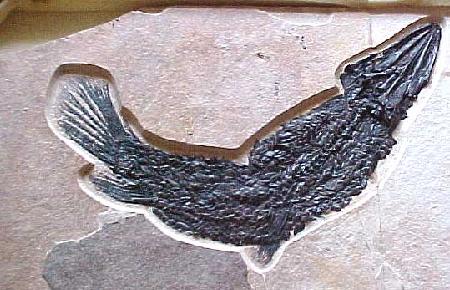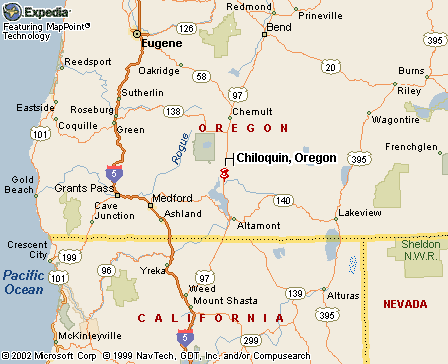|
|
Canku Ota |
|
|
(Many Paths) |
||
|
An Online Newsletter Celebrating Native America |
||
|
March 23, 2002 - Issue 57 |
||
|
|
||
|
Tribes’ Ceremony Honors C’waam |
||
|
by Anita Burke Klamath
Falls Herald and News
|
||
 Saturday
morning amid snow flurries and swirling smoke from a campfire, elders
of the Klamath Tribes blessed suckers in a ceremony honoring the fish. Saturday
morning amid snow flurries and swirling smoke from a campfire, elders
of the Klamath Tribes blessed suckers in a ceremony honoring the fish.
Tribal members gathered on the bank of the Sprague River in Chiloquin for the annual rite, which celebrates the return of the suckers, known as “c’waam” and pronounced “tchwam” by the Tribes. The ceremony recognizes the fish as an important food source when winter supplies were depleted and a vital part of the ecosystem, said tribal spokeswoman Taylor Tupper. “In our oral history, the Creator set forth the ceremony,” she said. “We need to honor these fish so they keep coming back.” Tribal Chairman Allen Foreman noted in his remarks opening the ceremony that the Klamath Tribes were good stewards of the Basin’s resources for thousands of years. “When the Tribes were strong and healthy, the entire region was strong and healthy,” he said. “I call upon the leaders of local, state and federal governments, from the president on down, to right the wrongs of broken treaties, to right the wrongs of termination (of tribal status), and to help restore our homelands to us so that we may begin to heal the land.” The c’waam ceremony traditionally was held after the first snow in March, when the suckers made their way up the Sprague, Williamson and Lost rivers to spawn, Tupper said. It marked the start of the Tribes’ annual fishery, which was closed in 1986 as sucker numbers dwindled. The fish are now protected under the Endangered Species Act and have been central to the debate over water in the Klamath Basin. Lost River suckers for the ceremony were captured near springs in Upper Klamath Lake. Derek Kimbol, a tribal natural resources technician, said the Tribes would prefer to catch fish in the Sprague River to make the ceremony historically accurate. However, only a few fish still venture up the river and they usually arrive late in the season and in poor condition, he said. The ceremonial suckers arrived in a plastic tub in the back of a pickup. Children eagerly gathered around to see the fish. Tribe members Rayson Tupper and Ken Knight lifted the fish from the tub of water to be blessed by tribal elders Neva Eggsman, Lorentino Weiser and Bobby David. David blessed the fish in the Klamath language, and Eggsman and Weiser prayed in English, asking for blessings for the fish and for the people participating in the ceremony. Gerald Skelton, a tribe member who works in the Tribes’ culture and heritage department, carefully clubbed the fish to death and placed its body in the fire to burn to ashes, as described in tribal legend. Two more fish were blessed, then released into a net pen in the river. Kimbol said the fish would be returned to the lake where they were captured. In addition to the ceremony, the Tribes sponsored a morning fun run and an afternoon powwow. Several area churches also brought in Native American ministers from Alaska to present a seminar on healing the land by taking a biblical approach to land issues.
|
||||
|
|
||
|
|
||
| Canku Ota is a free Newsletter celebrating Native America, its traditions and accomplishments . We do not provide subscriber or visitor names to anyone. Some articles presented in Canku Ota may contain copyright material. We have received appropriate permissions for republishing any articles. Material appearing here is distributed without profit or monetary gain to those who have expressed an interest. This is in accordance with Title 17 U.S.C. section 107. | ||
|
Canku Ota is a copyright © 2000, 2001, 2002 of Vicki Lockard and Paul Barry. |
||
|
|
|
|
|
The "Canku Ota - A Newsletter Celebrating Native America" web site and its design is the |
||
|
Copyright © 1999, 2000, 2001, 2002 of Paul C. Barry. |
||
|
All Rights Reserved. |
||

